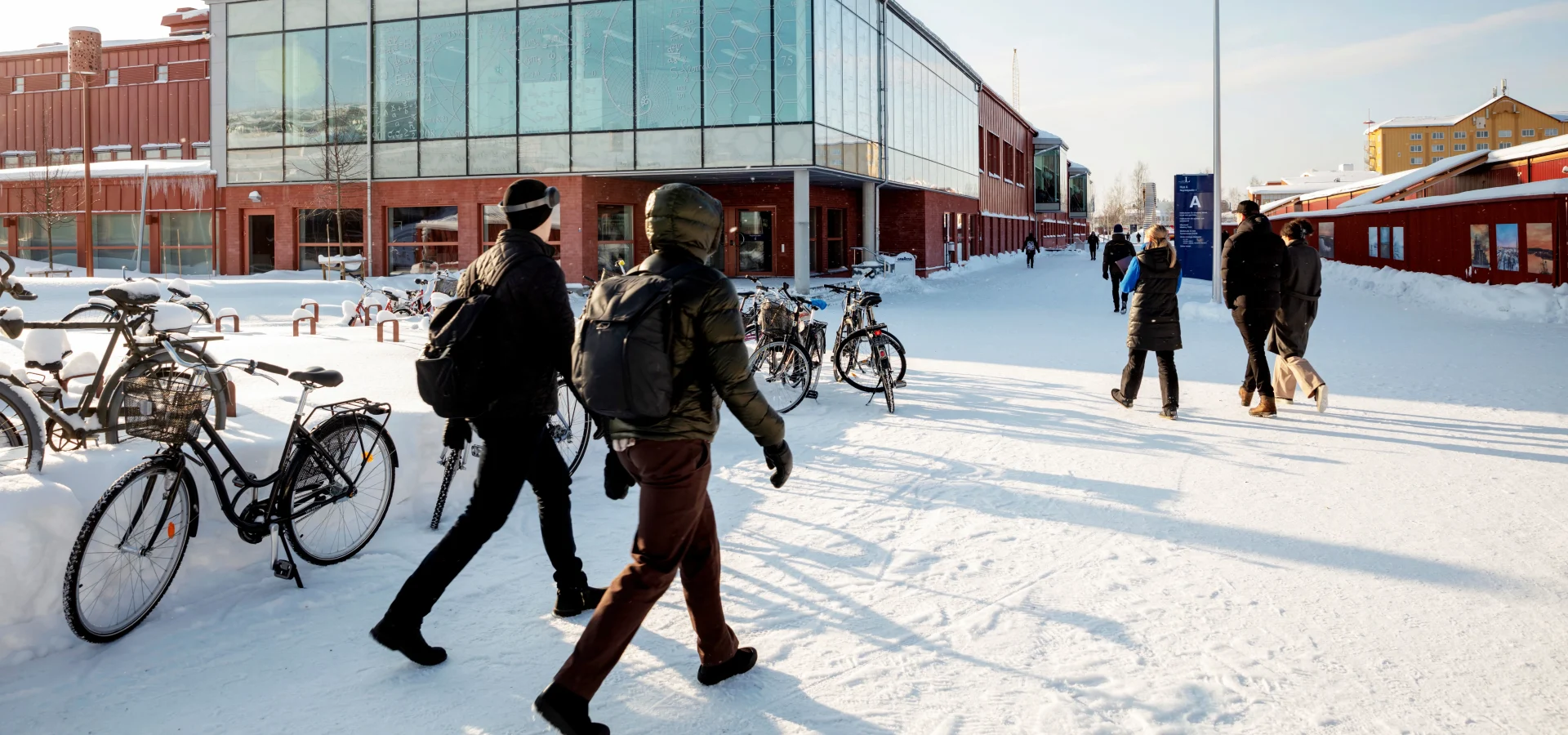
Type of Employment Part-time
Job position PhD student
Work model On location
Application due date 15 May 2025
PhD student in electronic systems with focus on electrodynamic calculations
Luleå, Sverige
Type of Employment Part-time
Job position PhD student
Work model On location
Application due date 15 May 2025
Are you the one?
Luleå University of Technology is growing rapidly with world-leading expertise in several research areas. We shape the future through innovative education and groundbreaking research results, and based on the Arctic region, we create global social benefits. Our scientific and artistic research and education are conducted in close collaboration with international, national and regional companies, public actors and leading universities. Luleå University of Technology has a total turnover of almost SEK 2.1 billion per year. We are currently 1,900 employees and have 18,700 students.
In the coming years, billions of kronor will be invested in Norrbotten and Västerbotten in major projects aimed at a more sustainable society nationally as well as globally. Luleå University of Technology is involved in several of these highly topical research projects and the social transformation that follows. We have a wide range of programs to match the skills that are in demand. We hope that you want to help us build the sustainable companies and societies of the future.
At the Department of Systems and Space Engineering, the university has gathered research and education in electrical engineering, space technology, computer and systems science. We are now looking for a PhD student to contribute to our growing activities in electrodynamic calculations at the division EISLAB. We conduct research in the areas of electronic systems, machine learning and cyber-physical systems. The Electronic Systems group focuses, among other things, on electrodynamic calculations and simulations. The research and teaching conducted is supported by high quality infrastructure with state-of-the-art laboratories for electromagnetic compatibility and microelectronics.
Subject description
Electronic Systems covers electronics design, measurement techniques and electromagnetic compatibility for control, monitoring and instrumentation of technical processes and systems, with close and broad links to applications and applied research.
Project description
The field of electrodynamic computing is developing rapidly, driven by advances in both technology and research. Trends and applications that are prominent include those related to the simulation of 5G systems, biomedical applications to simulate electromagnetic fields in human tissue, metamaterials for the design of materials with unique electromagnetic properties not found in nature, and electromagnetic compatibility for electronics systems, IoT systems, electric vehicles and fleet electrification.
We are now looking for PhD students who, together with the support of our team of researchers, want to develop into independent researchers in this area. We have several different project opportunities and directions in electrodynamic calculations and these applications. Our background and academic excellence lies in integral equation based solutions, e.g. PEEC and the method of moments, of electromagnetic problems. We use established tools but perform the majority of the scientific work in proprietary software based on Matlab or C++. We offer applicants to deepen their knowledge in electrodynamic calculations with applications in e.g. electric drive systems, transmission line theory, or metamaterials. The specific focus can to some extent be guided by the applicant's background and interests. As a PhD student, you will have a close collaboration with researchers and staff at the university as well as with experts in electrodynamic simulation and modeling in Sweden and internationally. If you are interested, parts of your time as a PhD student can be spent at one or more of our international collaboration partners.
Work tasks
A PhD position involves both theoretical and practical work. As a PhD student, you will be trained in scientific work in the form of publishing scientific articles in journals and at national and international conferences. You will also take compulsory and optional doctoral courses. In addition, you may have the opportunity to try out the role of teacher. As a researcher, you will work as a neutral party in many contexts, providing a great opportunity to learn how to run research and development projects.
Qualifications
We are looking for committed individuals who have:
-A solid educational background, Master's degree or equivalent, in electrical engineering, physics or related fields.
-Knowledge of coding languages such as MATLAB, C/C++ or Python.
A foundation in electromagnetic theory and numerical methods that emphasizes your problem-solving skills.
-Effective communication skills to convey complex ideas with clarity and impact.
For further information on specific doctoral training see
curricula for doctoral studies in the Faculty of Engineering
Information about the program
Employment as a doctoral student is limited to 4 years, teaching and other departmental duties can be added up to 20% of full time. Place of employment is Luleå. Intended access according to agreement.
For more information, please contact Jonas Ekman, Professor and Head of Department, 0920-49 2828, jonas.ekman@ltu.se
Trade union representative:
SACO-S Diana Chroneer, 0920-49 2037 diana.chroneer@ltu.se
OFR-S Marika Vesterberg, 0920-49 1721 marika.vesterberg@ltu.se
How to apply
We prefer that you apply for the position via the application button below where you attach a cover letter, CV/resume and copies of verified diplomas. Please mark your application with the reference number below. Both the application and the diplomas must be written in Swedish or English.
Deadline for applications: May 13, 2025
Reference number: 1891-2025
